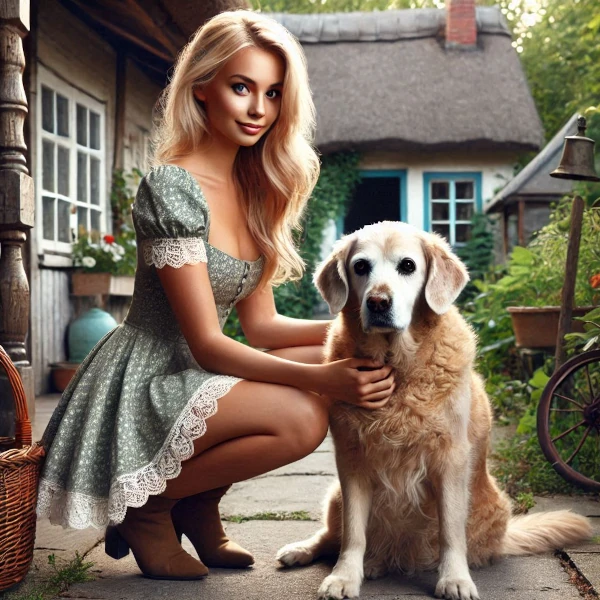Aging in Dogs: Identifying the Signs and Taking Care of Them
Just like humans, aging is a natural phase in a dog’s life. The signs of aging can vary depending on breed and genetics, but they share several common traits. Here are the main signs of aging in dogs and tips for managing this transition to maintain their quality of life.
Common Signs of Aging in Dogs
- Physical slowing down: Older dogs are often less active. They may show signs of fatigue more quickly or seem less enthusiastic about long walks.
- Joint problems: Arthritis and other joint conditions are common in older dogs, leading to stiffness and pain when moving.
- Changes in coat: Fur may become duller, and gray hairs can appear, particularly around the muzzle.
- Sensory issues: Dogs may experience vision and hearing loss as they age, affecting their ability to perceive their surroundings.
- Behavioral changes: Some dogs may become more anxious, reactive, or even apathetic. This can be linked to cognitive changes or pain.
- Changes in sleep: Older dogs often sleep longer or may have more fragmented sleep. Some may even develop "canine cognitive dysfunction syndrome," similar to dementia in humans.
- Weight gain or loss: As dogs age, their metabolism may slow, potentially leading to weight gain if their diet is not adjusted. Conversely, some dogs may lose their appetite, resulting in weight loss.
- Dental problems: The buildup of tartar and plaque is common in older dogs, sometimes leading to bad breath, inflamed gums, or even tooth loss.
- Incontinence: Issues like incontinence become more common with age due to muscle relaxation or underlying health problems.
- Digestive issues: Digestive problems, such as diarrhea or vomiting, may become more frequent. This can be due to increased intolerance to certain foods or changes in gut flora.
How to Manage Your Dog's Aging
Managing your dog's aging involves adjustments to maintain their comfort and health.
Maintain a suitable diet
The nutritional needs of dogs change with age. Opt for a diet rich in antioxidants, high-quality proteins, and low in calories to prevent weight gain, while supporting joint health with nutrients such as glucosamine and chondroitin.
Regular but moderate exercise
Light, regular exercise is essential to keep muscles and joints active. Prefer shorter, more frequent walks, and adapt activities to your dog's capabilities.
Regular veterinary check-ups
Veterinary consultations become increasingly important with age to monitor health changes. Regular exams allow early detection of common issues, such as dental disease or heart and kidney disorders.
Environmental adjustments
Make favorite areas more accessible by adding ramps or orthopedic cushions. Also, ensure your dog is protected from extreme temperatures, as older dogs may struggle with body temperature regulation.
Mental stimulation
Mental stimulation is crucial, especially with age. Interactive games, puzzle toys, and simple training exercises help stimulate their mind and prevent cognitive decline.
Conclusion
Aging in dogs is a natural and inevitable stage. However, by monitoring signs of aging and adjusting your routine, you can help your companion age in the best possible way. With proper care, senior dogs can continue to enjoy life comfortably and happily.
Other Tips for Dog Owners
© 2023 touslestoutous.com − All doggies. All rights reserved.
"The data available on this site may be used provided that the source is duly acknowledged."
